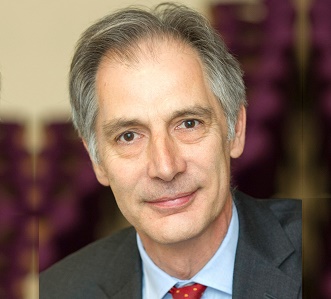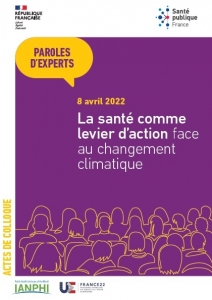Professor John Newton contributes to the latest international scientific knowledge on the links between climate, biodiversity and health
A speech by Professor John Newton delivered as part of the French Presidency of the European Union, Santé publique France and the International Association of National Institutes of Public Health (IANPHI) day of exchanges on health as a lever for action in the face of climate change has been published as part of a document to summarize key messages and open courses of action.
Professor Newton explains, “We need to learn from the COVID-19 pandemic: health surveillance is essential, and data must be transparent and published so that we can all use it to develop informed actions.”
His presentation goes on to state,
“We need to be disruptive. In scientific terms, this means for example assessing the positive effects of biodiversity and climate action, rather than focusing solely on the threats. We are working on this at the European Centre for Environment and Human Health in Exeter, through studies exploring the health benefits of actions on land use involving nature-based solutions. For example, there is now a lot of evidence linking environment and mental health. In the UK, the public health agency has joined forces with national parks to improve health. Indeed, connecting people to nature requires not only a good environment, but also infrastructure and support, which in turn requires investment.”

As part of the exchanges, speakers provided an overview of the latest scientific knowledge on the links between climate, biodiversity and health, and exchanged on existing actions to protect and promote health by adapting to and mitigating climate change.

The proceedings published are available in English and French. They summarize key messages and open courses of action.
Faced with a closing window for action, they call for investment in prevention and health promotion, creation of original partnerships and policy continuity over time. The commitment of local authorities allows a dynamic and a transversal impulse of the actors and the population in order to raise awareness and initiate measures on the theme of climate change.
To continue the reflection, a session was organized at the Rencontres de Santé publique France in June 2022 on the theme of “Climate change, biodiversity and health: what mobilization of actors to preserve the health of populations at the territorial level?“. The session illustrates local cross-sectoral initiatives that promote health, climate and biodiversity.
Public Health France is also continuing its actions on the monitoring of climate-related health effects in France, or the development of tools to meet the needs of adaptation to climate change. The work also aims to support ecological transition and mitigation policies, illustrating the seriousness of the negative effects of climate change, and highlighting the health co-benefits of these policies.
Professor Newton concludes,
“Another priority is to expand our partner networks. It is about reconnecting with the roots of public health in the 19th century, when collaborations between doctors and urban planners reshaped our cities. Finally, it is essential to organise the funding of the measures. Today, while it is accepted that
adaptation, mitigation and biodiversity conservation actions are cost-effective, this does not mean that they are funded.”